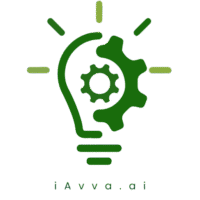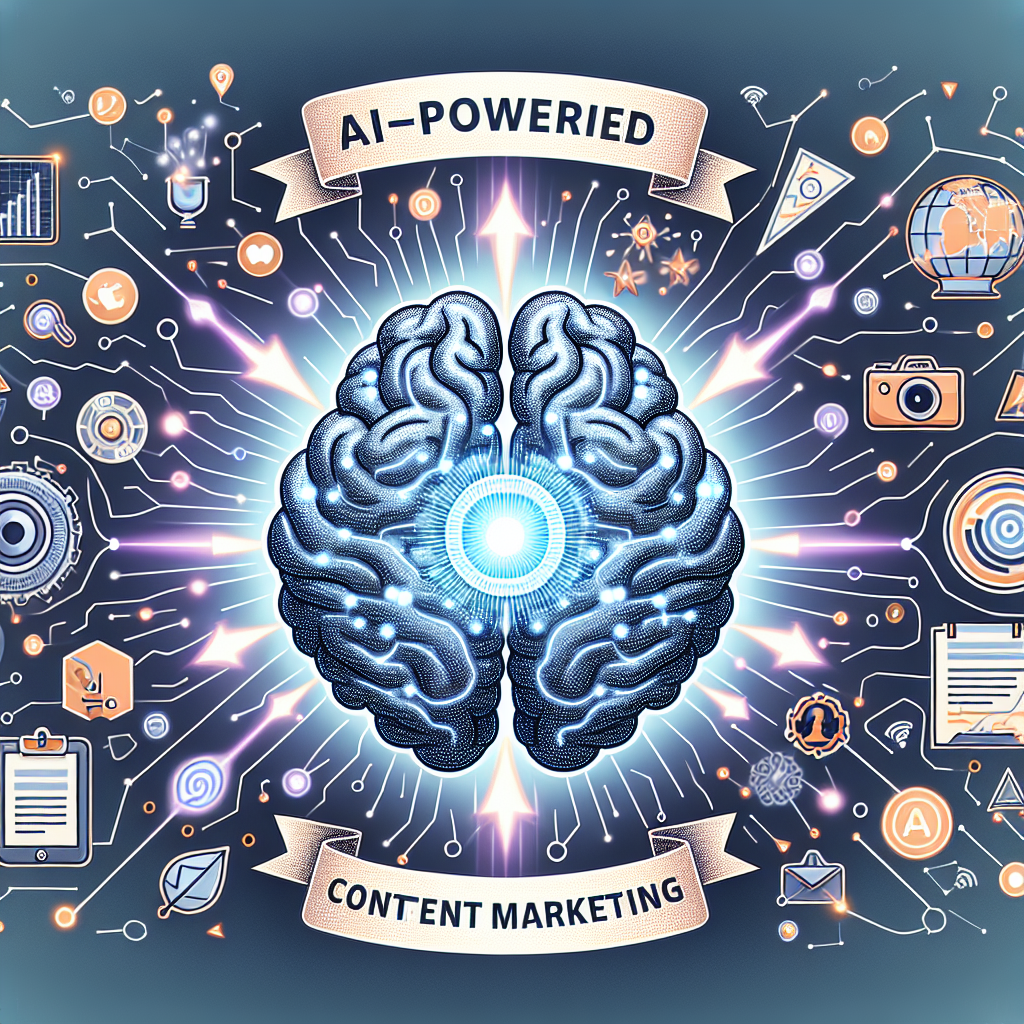In the rapidly evolving landscape of corporate training, artificial intelligence (AI) has emerged as a transformative force. The importance of AI in corporate training cannot be overstated; it is reshaping how organizations approach employee development, engagement, and retention. As companies strive to remain competitive in an increasingly digital world, the integration of AI into training programs is not just a trend but a necessity.
According to a report by McKinsey, organizations that leverage AI in their training initiatives can improve employee performance by up to 30%. This statistic underscores the potential of AI to revolutionize traditional training methods, making them more efficient, personalized, and impactful. Moreover, the global workforce is becoming more diverse and dispersed, with remote work becoming the norm rather than the exception.
AI can bridge the gap between different learning styles and geographical locations, providing tailored training experiences that cater to individual needs. By analyzing data on employee performance and learning preferences, AI can create customized learning paths that enhance knowledge retention and application. This personalized approach not only boosts employee morale but also fosters a culture of continuous learning, which is essential for organizational growth in today’s fast-paced business environment. Try iAvva AI coach app for free.
Key Takeaways
- AI in corporate training improves learning efficiency and effectiveness
- AI plays a crucial role in personalizing employee development programs
- Implementing AI technology in training programs enhances scalability and flexibility
- AI in corporate training offers benefits such as cost savings and real-time feedback
- Overcoming challenges in adopting AI for training requires addressing data privacy and security concerns
Understanding the Role of AI in Employee Development
AI plays a multifaceted role in employee development, acting as both a facilitator and an enhancer of learning experiences. At its core, AI can analyze vast amounts of data to identify skill gaps within an organization. By leveraging machine learning algorithms, companies can pinpoint areas where employees may need additional training or support.
This data-driven approach allows organizations to proactively address skill deficiencies before they become detrimental to performance. For instance, if an analysis reveals that a significant number of employees struggle with a specific software tool, targeted training can be implemented to address this gap. Furthermore, AI-powered platforms can provide real-time feedback to employees during their training journeys.
This immediate reinforcement helps learners understand their strengths and weaknesses, enabling them to adjust their learning strategies accordingly. For example, chatbots equipped with natural language processing capabilities can answer questions and provide resources on-demand, ensuring that employees have access to the information they need when they need it. This level of support not only enhances the learning experience but also empowers employees to take ownership of their development.
Implementing AI Technology in Training Programs

Implementing AI technology in training programs requires a strategic approach that aligns with organizational goals and employee needs. The first step is to assess the current training landscape and identify areas where AI can add value. This may involve conducting surveys or focus groups to gather insights from employees about their training experiences and preferences.
Once these insights are collected, organizations can explore various AI tools and platforms that best fit their requirements. For instance, companies can utilize AI-driven Learning Management Systems (LMS) that offer adaptive learning features. These systems can adjust the content and pace of training based on individual learner progress, ensuring that each employee receives a tailored experience.
Additionally, organizations should invest in training for trainers and managers to ensure they are equipped to leverage AI tools effectively. By fostering a culture of collaboration between human instructors and AI technologies, companies can create a synergistic environment that maximizes the benefits of both.
The Benefits of AI in Corporate Training
| Benefits of AI in Corporate Training |
|---|
| 1. Personalized Learning |
| 2. Adaptive Learning Paths |
| 3. Real-time Feedback |
| 4. Cost-effective Training |
| 5. Improved Engagement |
| 6. Data-driven Insights |
The benefits of incorporating AI into corporate training programs are manifold. One of the most significant advantages is the ability to scale training efforts without compromising quality. Traditional training methods often require substantial time and resources, making it challenging for organizations to keep pace with rapid changes in technology and industry standards.
AI enables companies to deliver consistent training experiences across large teams or even entire organizations, ensuring that all employees receive the same high-quality instruction. Additionally, AI can enhance engagement through gamification and interactive learning experiences. By incorporating elements such as quizzes, simulations, and rewards into training programs, organizations can create a more dynamic learning environment that motivates employees to participate actively.
Research from TalentLMS indicates that 83% of employees prefer learning through interactive content rather than traditional lectures. This shift towards engaging learning formats not only improves knowledge retention but also fosters a sense of community among employees as they collaborate and learn together.
Overcoming Challenges in Adopting AI for Training
Despite the numerous advantages of AI in corporate training, organizations may encounter challenges during the adoption process. One significant hurdle is resistance to change from employees who may be skeptical about new technologies or fear job displacement due to automation. To overcome this resistance, it is crucial for leaders to communicate the benefits of AI clearly and involve employees in the implementation process.
By emphasizing that AI is intended to enhance their roles rather than replace them, organizations can foster a more positive attitude towards technology adoption. Another challenge lies in data privacy and security concerns. As organizations collect and analyze employee data to inform training decisions, they must ensure that they comply with relevant regulations and protect sensitive information.
Implementing robust data governance policies and transparent communication about data usage can help alleviate these concerns. By prioritizing ethical considerations in AI adoption, organizations can build trust with their employees and create a more conducive environment for successful implementation.
Customizing AI Training Solutions for Different Industries

The versatility of AI allows for customization of training solutions across various industries, each with its unique challenges and requirements. For example, in the healthcare sector, AI can be utilized to create simulations for medical professionals to practice complex procedures in a risk-free environment. Virtual reality (VR) combined with AI can provide immersive experiences that enhance clinical skills while ensuring patient safety.
In contrast, the manufacturing industry may benefit from AI-driven predictive maintenance training programs that teach employees how to identify potential equipment failures before they occur. By tailoring AI solutions to meet the specific needs of different sectors, organizations can maximize the effectiveness of their training initiatives and ensure that employees are equipped with the skills necessary for success in their respective fields.
Maximizing ROI with AI Training Programs
To maximize return on investment (ROI) from AI training programs, organizations must establish clear metrics for success from the outset. This involves defining key performance indicators (KPIs) that align with business objectives and measuring progress over time. For instance, companies may track improvements in employee performance metrics post-training or monitor engagement levels during training sessions.
Additionally, organizations should continuously evaluate and refine their AI training programs based on feedback and performance data. By adopting an iterative approach to program development, companies can identify areas for improvement and make necessary adjustments to enhance effectiveness. A study by Deloitte found that organizations that regularly assess their training programs see a 25% increase in employee productivity compared to those that do not engage in ongoing evaluation.
Future Trends in AI Corporate Training
As technology continues to advance at an unprecedented pace, several trends are emerging in the realm of AI corporate training. One notable trend is the rise of personalized learning experiences powered by advanced algorithms that analyze individual learning patterns and preferences. This shift towards hyper-personalization will enable organizations to deliver even more tailored training solutions that cater to diverse employee needs.
Another trend is the integration of augmented reality (AR) into training programs. AR has the potential to revolutionize hands-on training by overlaying digital information onto real-world environments. For example, technicians can use AR glasses to receive real-time instructions while performing repairs on machinery, enhancing both efficiency and safety.
As these technologies continue to evolve, organizations must remain agile and open to adopting innovative solutions that enhance their training initiatives.
Ethical Considerations in AI Training
The integration of AI into corporate training raises important ethical considerations that organizations must address proactively. One key concern is bias in AI algorithms, which can lead to unequal access to training opportunities or reinforce existing disparities within the workforce.
Additionally, transparency around data usage is essential for building trust with employees. Organizations must communicate how employee data will be collected, analyzed, and utilized within training programs while ensuring compliance with privacy regulations such as GDPR or CCPBy prioritizing ethical considerations in their AI initiatives, companies can foster a culture of accountability and responsibility that resonates with employees.
Measuring the Effectiveness of AI Training
Measuring the effectiveness of AI training programs is crucial for understanding their impact on employee performance and organizational outcomes.
Surveys and feedback sessions can provide valuable insights into employee satisfaction and perceived value of the training experience.
On the quantitative side, companies can analyze performance metrics such as productivity levels, error rates, or sales figures before and after training implementation. By correlating these metrics with specific training interventions, organizations can gain a clearer understanding of what works best for their workforce. Continuous measurement and analysis will enable companies to refine their training strategies over time and ensure they are maximizing the benefits of their AI investments.
Case Studies: Successful Implementation of AI in Corporate Training
Several organizations have successfully implemented AI-driven corporate training programs that serve as inspiring examples for others looking to embark on similar journeys. One notable case is Unilever, which has integrated AI into its recruitment and onboarding processes through its “Unilever Future Leaders Programme.” By utilizing machine learning algorithms to analyze candidate data and predict success factors, Unilever has streamlined its hiring process while ensuring a diverse talent pool. Another compelling example comes from Walmart, which has embraced virtual reality (VR) powered by AI for employee training across its retail stores.
The company developed immersive VR scenarios that simulate real-life customer interactions, allowing employees to practice their skills in a safe environment before engaging with actual customers. This innovative approach has resulted in improved customer service ratings and increased employee confidence. These case studies highlight not only the potential of AI in corporate training but also the importance of aligning technology with organizational goals and values.
As more companies recognize the transformative power of AI in employee development, we can expect to see continued innovation and growth in this space. In conclusion, the integration of artificial intelligence into corporate training represents a paradigm shift that offers immense potential for enhancing employee development and organizational success. By understanding its role, implementing effective strategies, overcoming challenges, customizing solutions for various industries, maximizing ROI, addressing ethical considerations, measuring effectiveness, and learning from successful case studies, organizations can harness the power of AI to create impactful training experiences that drive growth and innovation in today’s dynamic business landscape.
In the rapidly evolving landscape of artificial intelligence, corporate AI training has become a pivotal component for businesses aiming to harness the full potential of AI technologies. A related article that delves into the broader implications of AI in professional settings is








